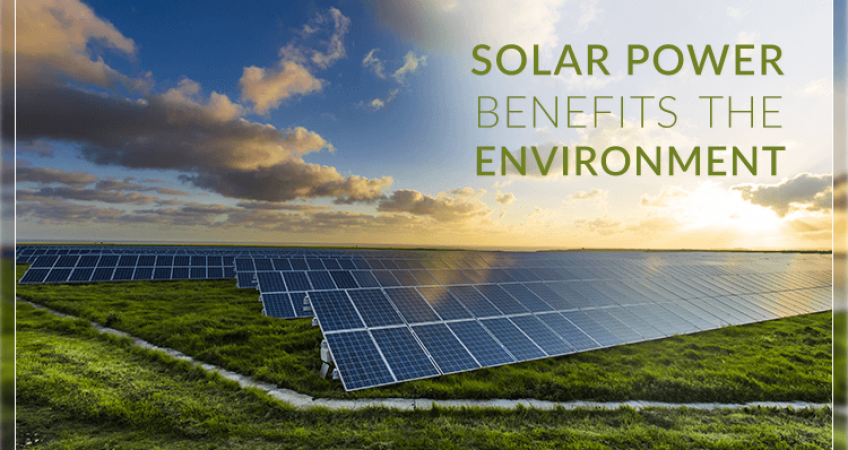Solar Power and Environment

- Solar Energy Reduces Water Pollution
In thermoelectric plants, coal, natural gas, oil and nuclear energy require cooling — and this requires vast amounts of water. But there’s a problem: 72 percent of water pollution comes from coal-fired power plants, and toxic pollution is linked to cancer, heart attacks and neurological damage. Thankfully, there’s a solution.
Generating energy from renewable sources instead of fossil fuels can improve public health and river ecosystems. Solar energy doesn’t pollute local water resources, because solar photovoltaic cells don’t rely on water to generate power. The result? Cleaner drinking water for your whole family without wasting energy.
- Solar Energy Reduces Air Pollution
31 percent of greenhouse gas emissions in the United States comes from electricity production — a shocking statistic, especially when methane and carbon dioxide emissions are major contributors to global warming. Greenhouse gases reduce air quality and increase weather extremes. Using solar energy systems can mitigate some of the damage, as solar panels don’t produce any greenhouse gasses when generating electricity.
- Solar Energy Reduces Hazardous Waste
More than 400 million tons of hazardous waste is produced every year, according to the United Nations Environmental Program; however, not all waste is thrown away safely. In Canada, for example, 30 percent of waste producers fail to meet government guidelines for correct disposal procedures. This is worrying: Nuclear fission products, in particular, continue to be radioactive for thousands of years, meaning they could have a detrimental effect on human health and the environment. Unlike traditional energy sources, solar power doesn’t rely on fuel to generate electricity, eliminating the problem of radioactive waste storage and fuel transportation.